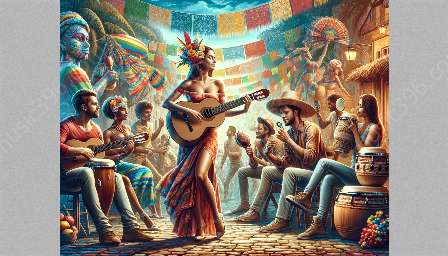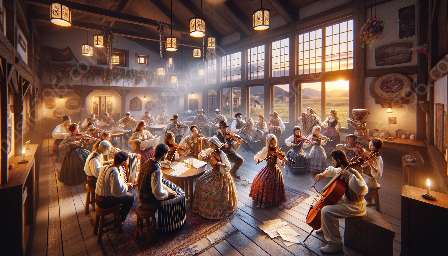The blues genre has played a pivotal role in shaping the diverse musical landscape of North America and has had a profound influence on world music. Originating in the African American communities of the deep south, the blues genre has evolved and adapted over time, leaving an indelible mark on various music genres and cultures.
The Roots of Blues Music
The roots of the blues can be traced back to the 19th century, emerging from the work songs, spirituals, and field hollers of African American slaves. The genre served as a form of expression and storytelling, reflecting the experiences of oppression, resilience, and hope within the community.
The distinctive musical elements of blues, such as the 12-bar chord progression, call-and-response patterns, and emotive vocal delivery, became foundational components that would resonate across North American music and beyond.
Impact on North American Music Culture
The blues genre significantly influenced the development of various music styles in North America, including jazz, rock and roll, R&B, and soul. Its raw and emotive quality, coupled with its focus on personal narratives and societal issues, provided a blueprint for artists to innovate and push musical boundaries.
Artists like Muddy Waters, B.B. King, and Robert Johnson were instrumental in popularizing the blues and paving the way for future generations of musicians. Their contributions not only transformed the North American music scene but also had a ripple effect that transcended geographical and cultural boundaries.
Integration into World Music
The blues genre's influence extends far beyond North America, making a significant impact on world music. As the genre spread globally, it merged with local musical traditions, giving rise to new and distinctive sounds in different regions.
In Europe, artists like The Rolling Stones and Led Zeppelin were inspired by the blues, infusing it into their rock music and introducing it to international audiences. This cross-pollination of musical styles contributed to the globalization of the blues genre and its integration into diverse cultural contexts.
Modern Interpretations and Legacy
Despite the evolution of music in the digital age, the blues genre continues to resonate with contemporary artists and audiences. Its legacy can be heard in the works of modern musicians who pay homage to the genre while incorporating their own interpretations and contemporary influences.
Furthermore, the enduring impact of the blues on North American music culture is evident in the establishment of blues festivals, preservation of blues archives, and the recognition of the genre's historical significance. These efforts contribute to the continued appreciation and celebration of the blues genre as a vital component of the musical heritage of North America and beyond.
Conclusion
The blues genre has left an indelible mark on North American music culture, shaping its distinct styles and influencing a wide array of music genres. Its enduring legacy has transcended geographical boundaries, integrating into world music and inspiring artists worldwide. The rich history and evolution of the blues genre continue to resonate with audiences, cementing its position as a cultural treasure that continues to inspire and influence generations of musicians and music enthusiasts.










































